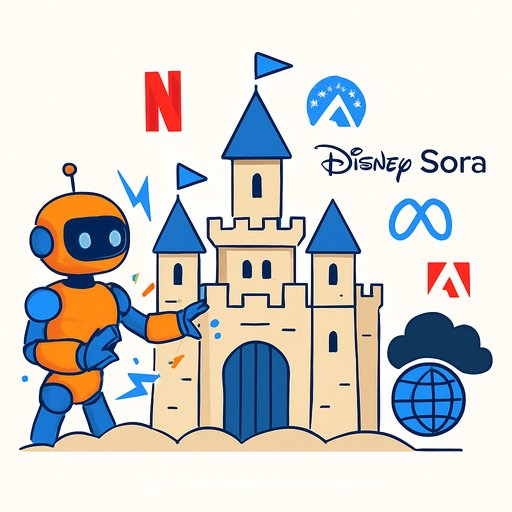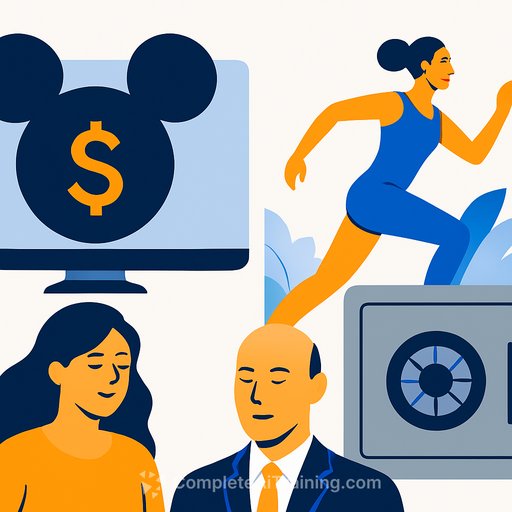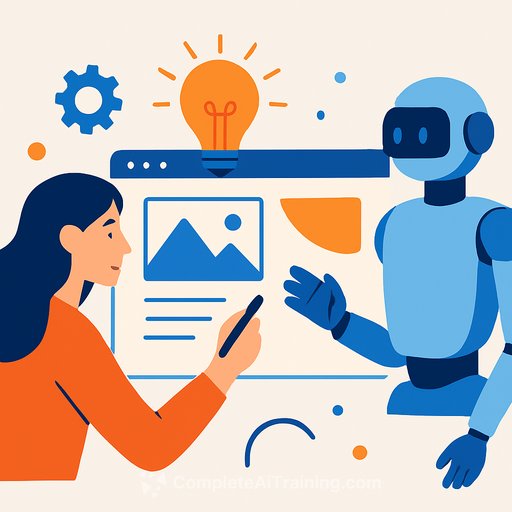Custom Comet Bucks the AI Trend: Why Real Artists Still Matter
Artificial intelligence is making inroads into many creative industries, offering faster and cheaper design options. AI tools can generate detailed illustrations in seconds, tempting businesses to cut costs and speed up production. Yet, Custom Comet, a Portland-based maker of promotional products, has taken a different path. Led by President Jessica Marshall, they’ve chosen to focus on human artistry rather than AI-generated designs, carving out a unique place in a crowded market and building a loyal following that values genuine creativity.
The Pressure to Automate in Custom Merchandise
AI art platforms have surged in popularity, from early tools like DeepArt to advanced systems such as Gemini and ChatGPT. These programs can replicate many artistic styles quickly, making them appealing for companies aiming to avoid the hassle of hiring artists and waiting for designs. In custom merchandise, speed and cost often drive decisions. For example, generating a vintage pin-up style keychain design can take minutes with AI.
However, AI-generated art comes with drawbacks. Many models train on copyrighted images without permission, raising legal and ethical issues. Additionally, AI designs often share a generic feel with recognizable quirks that reveal their machine origins, which can undermine brand uniqueness.
Custom Comet’s Contrarian Choice
While Custom Comet experimented with AI tools, they found that human artists offer something AI cannot: interpretation, personality, and a dialogue with the client. Jessica Marshall explains, “When you work with a human artist, you’re getting more than just an image. You’re getting interpretation, personality, and a conversation.” Their artists collaborate closely with clients to understand their vision, brand, and tone before creating designs.
The company produces a wide variety of custom products—air fresheners, drink coasters, stickers, lapel pins—each treated as a small canvas. This approach results in thoughtful, purposeful designs tailored specifically to each customer, rather than generic outputs from AI mashups.
A Human Touch in a Digital Age
Custom Comet’s commitment to real artists is both a philosophical stance and a business tactic. Although AI might seem like the efficient choice, customers recognize and pay for the quality and originality that human creativity delivers. For instance, a popular restaurant chain sought custom merchandise for their gift shops. They had only an iconic logo and had received uninspired AI-generated designs elsewhere.
Custom Comet provided a line of products with appealing packaging and collaborated directly with the client’s team to bring their ideas to life. The result was far from generic. The personal touch captured the brand’s personality, leading to multiple re-orders and limited edition pieces created by Custom Comet’s artists.
Standing Apart from the Competition
In a saturated promotional product market, design quality is a major differentiator. Many vendors offer similar prices and product ranges, so distinctive, original art becomes a premium selling point. Custom Comet highlights that every design is custom-made by a professional artist who listens, revises, and collaborates.
This human-centered approach also builds trust. Clients can be confident their designs won’t unintentionally infringe on copyrights or appear as derivative AI creations. It’s a clear promise of originality and craftsmanship.
Challenges of the Human-First Model
Choosing to prioritize human artists brings challenges. Hiring creatives is costlier and slower than using AI tools. Artists can’t produce dozens of variations in seconds, and the design process requires back-and-forth communication.
But Custom Comet sees these factors as advantages. Marshall notes, “The process is part of the value. Customers often enjoy the collaboration and the feeling that they’re co-creating something unique. It becomes a relationship, not just a transaction.”
Broader Cultural Implications
Custom Comet’s approach touches on a wider conversation about technology in creativity. As AI grows in the arts, some worry human creators will be sidelined in favor of faster, cheaper machine-made work. Others see AI as a tool that can coexist with human creativity rather than replace it.
Surveys show most customers prefer human interaction over AI, even in customer support. A recent poll found only 4% of people favor speaking to a chatbot instead of a real person. This preference extends to creative work as well.
Customer Response to Custom Comet’s Human Creativity
The feedback has been strongly positive. Small businesses, nonprofits, and large brands alike appreciate the human element in Custom Comet’s work. Some clients feel proud knowing a real artist created their merchandise. A local brewery summed it up: “When I tell people an artist designed this for us, they get excited. It’s not just swag, it’s a little piece of art.”
Looking Ahead: The Future of Custom Comet
As AI tools improve, pressure to adopt them will continue. Still, Custom Comet remains committed to a people-first model. They believe in standing out by offering designs that real artists create with care and connection.
Jessica Marshall says, “Our artists are our difference maker. They’re not just making designs, they’re creating connections.” In a market chasing speed and automation, slowing down to invest in human creativity feels like a bold and necessary choice—one that resonates deeply with their customers.
Your membership also unlocks:






